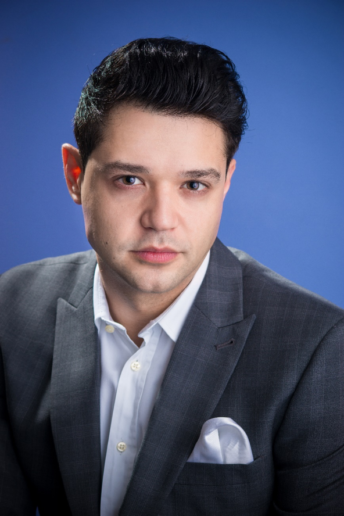Open Lecture ‘Eyes are the Window to the Future Soul’ Predicting Individual Differences in Children’s Temperament and Behaviour from Day 1’
September 15, 2017 – Open Lecture ‘Eyes are the Window to the Future Soul’ Predicting Individual Differences in Children’s Temperament and Behaviour from Day 1’ by Dr. Kostas A. Papageorgiou (Director of the InteRRaCt Lab; Lecturer in Developmental Psychopathology; Queen's University Belfast,School of Psychology).
The International Centre for Research in Human Development invites TSU undergraduates, MSc and PhD students and lecturers from different academic backgrounds to the open lecture ‘Eyes are the Window to the Future Soul’ Predicting Individual Differences in Children’s Temperament and Behaviour from Day 1” by Dr. Kostas A. Papageorgiou (Director of the InteRRaCt Lab; Lecturer in Developmental Psychopathology; Queen's University Belfast, School of Psychology).
Dr Kostas Papageorgiou will present an interdisciplinary study on the association between visual attention in the first year of life and temperament, behaviour and symptoms of psychopathology in childhood.
The findings of the study suggest that while there are many factors which influence behavioural problems and temperament in childhood, part of what affects later behaviour is already present at birth. As such, the origins of individual differences in behaviour are not likely to be wholly due to the postnatal environment. These causal factors could be genetic or stemming from the prenatal/perinatal environment.
Studying visual attention in the first year of life constitutes a window into the developmental mechanisms that contribute to variation in temperament, behaviour and psychopathology throughout the lifespan. The lecture will discuss the following questions:Why should we study newborns’ and infants’ visual attention?What are some of the factors that influence attention at birth?How can we assess visual attention?Can early visual attention predict variation in behaviour and psychopathology in childhood?Why do we need interdisciplinary studies in Psychology?
If you would like to learn more about Dr. Kostas A. Papageorgiou:.
 Dr.Papageorgiou is a Lecturer in Developmental Psychopathology at Queen’s University Belfast and an Associate Professor in Personality Psychology, Psychology Department at Tomsk State University in Russia. Kostas lectures on MSc courses in the School of Psychology at Queen’s and supervises BSc, MSc, PhD, and Post-Graduate students’ research. He is also the convenor of the course “Interdisciplinary Study of Development” in the MSc Human Development: Genetics, Neuroscience and Psychology at Tomsk State University. Kostas is the Director of the InteRRaCt Lab and an International Associate Member of InLab at Goldsmiths, and the Russian-British Behavioural Genetics Laboratory at the Psychological Institute of the Russian Academy of Education. He is also a member of the committee of the Special Interest Group in Paediatric Psychology of the Psychological Society of Ireland and a member of the International Society for Intelligence Research.
Dr.Papageorgiou is a Lecturer in Developmental Psychopathology at Queen’s University Belfast and an Associate Professor in Personality Psychology, Psychology Department at Tomsk State University in Russia. Kostas lectures on MSc courses in the School of Psychology at Queen’s and supervises BSc, MSc, PhD, and Post-Graduate students’ research. He is also the convenor of the course “Interdisciplinary Study of Development” in the MSc Human Development: Genetics, Neuroscience and Psychology at Tomsk State University. Kostas is the Director of the InteRRaCt Lab and an International Associate Member of InLab at Goldsmiths, and the Russian-British Behavioural Genetics Laboratory at the Psychological Institute of the Russian Academy of Education. He is also a member of the committee of the Special Interest Group in Paediatric Psychology of the Psychological Society of Ireland and a member of the International Society for Intelligence Research.
In 2011, Kostas was awarded a European Marie Curie Fellowship to pursue a PhD (2011-2015) at the Centre for Brain and Cognitive Development at Birkbeck University of London. His doctoral thesis “Individual Differences in Infant Visual Attention: Links to Child Temperament, Behaviour and Genetic Variation” explored the genetics of visual attention in the first year of life; and the degree to which individual differences in newborns’ and infants’ visual attention predict variation in temperament, cognition and symptoms of psychopathology in childhood.
Kostas uses an interdisciplinary approach in his research, combining methods in cognitive and developmental neuroscience, personality assessment and genetics to study some of the factors that contribute to individual differences in resilience, cognition and academic performance.
Date: September 15, 2017 (Friday), 16.35-18.10
Venue: Tomsk State University, International Centre for Human Development Studies, 4 building, room 022 (conference room).
Contact information: e-mail: icrhd@mail.ru
Phone +7 (3822) 786 050

